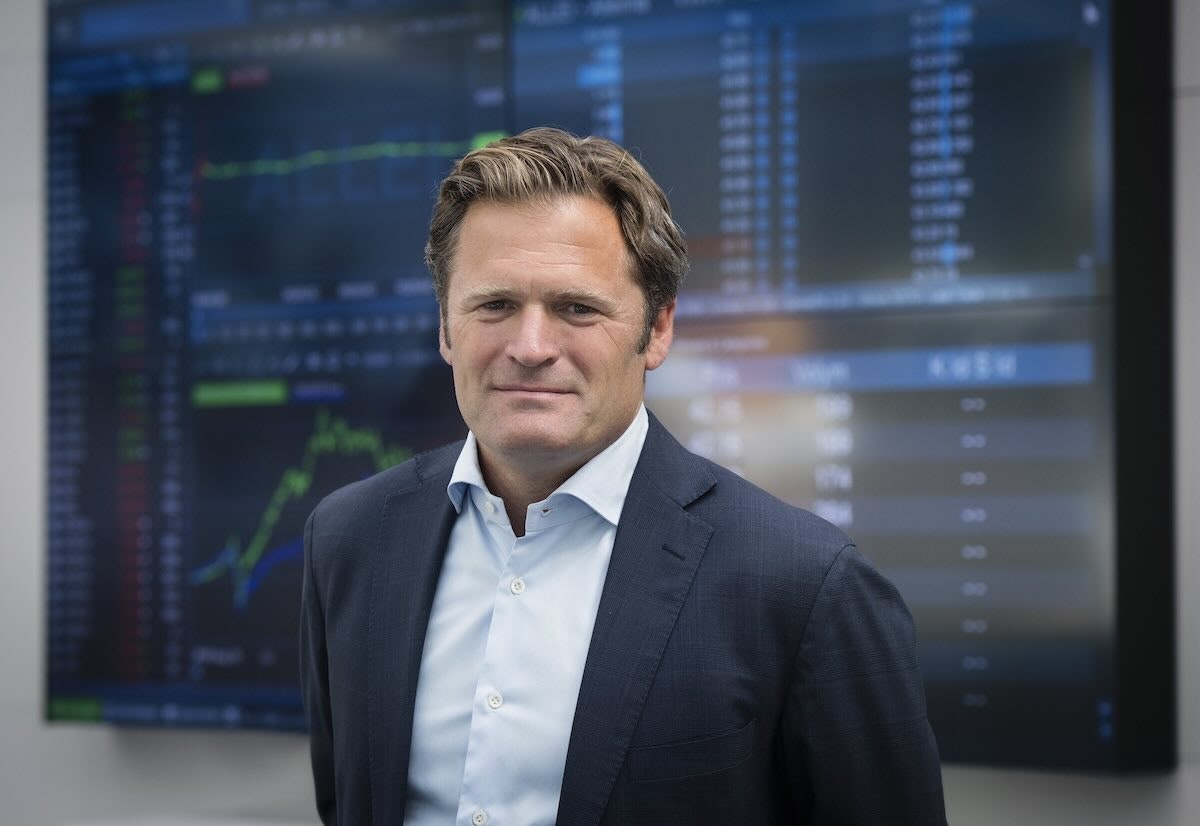Shares in buy now, pay later giant Klarna traded on the secondary market are up about 45% in the last six months, according to US-based private market data company Caplight.
The majority of those gains occurred in the last few months of 2023, in line with a broader uptick in valuations across the secondary market since mid-last year, says Caplight CEO Javier Avalos, whose company aggregates private secondary market data from 100 contributors.
“Fintech was one of the hardest hit sectors just in terms of that peak-to-trough valuation” during the downturn, Avalos tells Sifted — and “that was heavily led by companies like Klarna.”
Now the tables have turned, he adds: there are many more investors interested in buying rather than selling. “When I look back to March of 2023… our order book was entirely sell orders,” he says. By November of last year, “like, 70% of all order activity or interest in the name was on the buy side.”
Those trading Klarna are largely institutional investors buying and selling bigger ticket sizes (the average transaction is around $3m to $5m, Avalos says).
Owners of those shares, like Johan Hägglund, CEO and founder of Swedish secondary market startup Tioex, are feeling the rise in demand, too. Tioex has been buying shares in Klarna since 2020, and bought more last autumn, he tells Sifted. “We get many calls every week about people that want to buy our shares,” Hägglund says, adding that he’s also heard other shareholders say they have “tonnes of requests right now.”
But why is Klarna having a moment in the sun?
A ‘fair’ valuation
The Swedish giant is among the few fintechs that has raised a down round since the downturn began — raising funding in 2022 at a $6.7bn valuation; more than an 80% discount from its previous $45bn 2021 valuation.
That’s the “real explanation” for Klarna’s strong performance on the secondary market in the last year, says Avalos.
“Because they reduced their valuation so significantly in the down round, it just sort of created a base where new investors could come in in the secondary market and actually be willing to bid up. The market’s perception is that valuation was fair, taking into account some of the recent financial performance.”
Based on how Klarna is trading right now, per Caplight’s data, it would have an estimated valuation of around $9.5bn — a more than 40% increase from the 2022 valuation.
Klarna’s recent financial performance is also likely contributing to its popularity with investors, say secondaries insiders. In November, Klarna posted its first quarterly profit in four years, for the third quarter of last year. Those financial reports, which offer an uncommon level of transparency for a private company, are “part of the reason investors love Klarna in the secondary market”, says Avalos.
Others like Hägglund are optimistic that Klarna, which has been teasing an IPO, actually will go public soon — and are, of course, betting on it. “Most investors I talk to have the same sentiment that most likely this will happen this year.”
However, it’s unclear if (and when) the IPO market will reopen to welcome Klarna in. Plus, there’s been some drama on Klarna’s board lately, with Sequoia Capital reportedly pressuring longtime investor Michael Moritz — who left Sequoia last year and wrote the firm’s first cheque into Klarna — off of the startup’s board.
If its public fellow fintechs’ performance is anything to go by, Klarna might find a more positive sentiment among public investors: Adyen, the Dutch payments scaleup which went public in 2018, has seen its shares trading up over 70% in the past six months.



